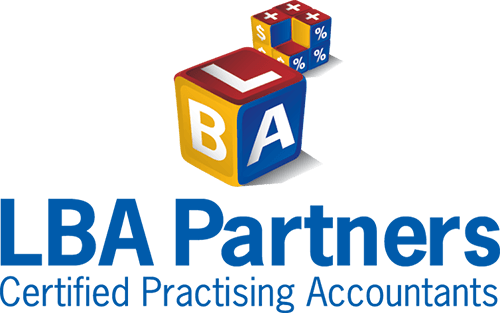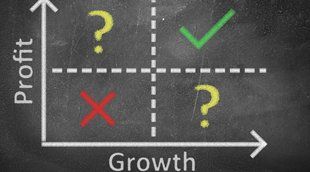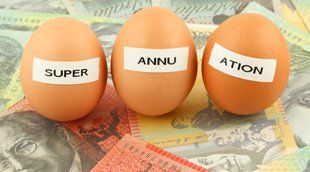Here's our latest newsletter, if you would like to follow up any of the information please contact Linda or Grahame
P r a c t i c e U p d a t e
December 2012
ATO's motor vehicle data matching program
The ATO has obtained, or will obtain, data identifying all motor vehicles sold, transferred or newly registered in the 2011/12 and 2012/13 income years, where the transfer and/or market value is $10,000 or greater, from all of the State and Territory motor vehicle registering bodies.
Data relating to approximately 2.8 million individuals will be matched against taxpayer records to identify those participating in the cash economy, and/or those who may not be declaring all their income or deliberately avoiding their tax obligations.
The ATO recommends that those identified as being at risk of potentially skimming some or all of their cash takings, running part of their business 'off-the-books', or in other ways not reporting all their income, contact them to make a voluntary disclosure of any under-reported amounts.
Editor: Of course, we recommend you contact us first!
ATO urges caution with SMSF property investments
The ATO has warned trustees of self-managed superannuation funds (SMSFs) to be cautious when investing in property.
The ATO is concerned that people are using their SMSFs to invest in property without fully understanding their obligations under the law, or that some people are seeking to take advantage of certain types of arrangements.
The ATO is primarily concerned with arrangements where:
- an SMSF invests in a related unit trust by acquiring units in the trust, and the unit trust acquires property, but the arrangement breaches the superannuation compliance rules in some way, such as where the property is subjected to a mortgage, or is acquired from or rented to a related party, when it would otherwise be prohibited; and
- an SMSF enters into a Limited Recourse Borrowing Arrangement (LRBA) to acquire an asset, and the arrangement does not comply with the strict conditions that must be met for SMSFs that borrow.
In particular, these borrowings must generally be used to acquire a single asset (that the fund is not otherwise prohibited from acquiring; e.g., SMSFs are prohibited from acquiring residential property from a related party), and the asset acquired cannot be held directly by the SMSF but must be held by a separate 'holding trustee' (or 'custodian'), solely for the benefit of the SMSF.
The ATO has also stated that:
– the trustee of the holding trust must be in existence, and the holding trust must be established, by the time the contract to acquire the asset is signed; and
– the SMSF cannot borrow to acquire a vacant block of land and then use the same borrowing to construct a house on the land.
According to the ATO: "The fine details are important and trustees need to be sure that property is the right investment for their SMSF and that the arrangement is legal."
"Some of these arrangements, if structured incorrectly, cannot simply be restructured or rectified. The only option may be to unwind the arrangement which could involve forced sale of assets at an inconvenient time. This could be very expensive for the fund with potential stamp duty and tax consequences."
SMSFs that do not comply with the superannuation laws may also become 'non-complying' for tax purposes and, if the SMSF or the unit trust needs to dispose of the relevant property, they may incur a CGT liability, or the SMSF (and any other unitholders) may be required to include a capital gain in their assessable income if they need to redeem their units in the unit trust.
In addition, the ATO states that where arrangements are deliberately entered into to get around the law, the fund's trustees may be disqualified, face civil penalties or even face criminal charges.
Payments for electricity generated from solar panels
More and more homeowners are installing solar panel systems in their homes. In some cases, the solar panel system may produce more electricity than they consume. If this is the case, the homeowner can often "sell" the excess electricity back to their electricity company, which will be released into the electricity grid.
This obviously begs the question: will the payments they receive from the electricity company be included in their assessable income?
The ATO has basically confirmed that, in typical situations where payments are received from electricity retailers by homeowners for the power generated by their solar panels that is exported to the grid, the payments would generally not be classed as assessable income, as they would be private or domestic in nature. This conclusion takes into account the amount of equipment used to generate the electricity, the current pricing structure, and the fact the homeowner produces the electricity for a domestic purpose only.
In addition, since the payments are not assessable income and are private or domestic in nature, a homeowner in the above situation would not be able to claim a deduction for the costs associated with the solar system, such as interest and depreciation.
Note, however, that if the characteristics of the activity change (including the motivation for undertaking that activity, how the activity is undertaken and whether there is a real prospect of profit from the activity), the receipts or credits from the activity may become assessable income.
Trust resettlements and CGT
The ATO has effectively confirmed that a trust deed can be varied without the trust being 'resettled' and causing CGT problems.
More specifically, they state that there should be no CGT consequences if the trustee validly exercises a power contained within the trust deed to change the terms of the trust (or the deed is varied with the approval of a relevant court), unless:
- the change causes the existing trust to terminate and a new trust to arise for trust law purposes; or
- the effect of the change leads to a particular trust asset being subject to separate rights and obligations, giving rise to the conclusion that the relevant asset has been settled on terms of a different trust.
Changes to the GST treatment of Government charges
Editor: The GST treatment of government taxes and charges is changing. In the past, the Treasurer would specifically list, in an annual determination, each government tax and charge that is GST-free.
The tax laws regarding this system were amended in 2011, but a transitional period was allowed so that government charges listed on the Treasurer's determination were still exempt until 30 June 2013.
The ATO has reminded taxpayers that the Treasurer's current determination listing government charges that are exempt from GST will no longer apply from 1 July 2013.
This means that, from 1 July 2013, taxpayers must review all their government charges to self-assess whether GST is payable.
Editor: We can obviously assist, but the ATO has also provided a flowchart on their website to help taxpayers work out if a government charge is exempt from GST.
Please Note: Many of the comments in this publication are general in nature and anyone intending to apply the information to practical circumstances should seek professional advice to independently verify their interpretation and the information's applicability to their particular circumstances.
Management Consulting
We have the know-how and experience to offer advice that helps you run your business more effectively.
Self-Managed Superannuation Funds
At LBA Partners we provide the professional advice you need to manage your own fund and greatly simplify the process for you.



